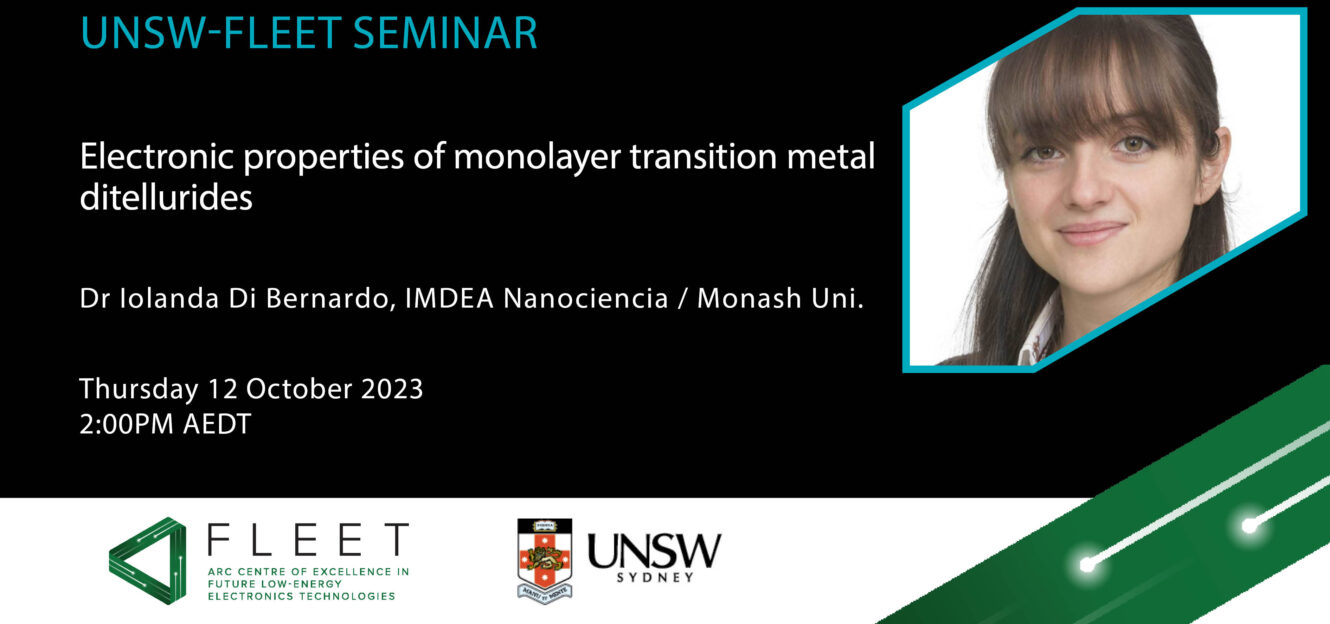-
12 Oct 2023
2:00 pm - 3:00 pm
Dr Iolanda Di Bernardo, Marie Sklodowska-Curie Fellow at IMDEA Nanociencia; Associate investigator at ARC FLEET Centre of Excellence; School of Physics and Astronomy, Monash University
In person – Venue: G59, K15 Old Main Building, UNSW
On Zoom
Transition metal ditelluride (TMDT) monolayers are of considerable interest for fundamental research as they present strongly electron-correlated phases, including charge density waves and unusual magnetic phenomena. Polymorphic phases and collective phenomena dictate the physical and electronic properties of the material. First, we explore the MBE growth of TaTe2 over gr/Ir(111). Confinement to the monolayer leads to the emergence and stabilization of polymorphic phases (1H and 1T) which are unstable in the bulk (stable in the 3×1 distorted octahedral phase) and host a variety of temperature-dependent charge density waves. We then present our latest results on the growth of monolayer WTe2, a well-known topological insulator which has been proposed to host an excitonic insulator phase. To shed light on the nature of WTe2 bandgap, we carried out scanning tunnelling microscopy and spectroscopy experiments at ultra-low temperatures (1.2K) and in the presence of a magnetic field up to 3 T. We discuss the spatial modulation of the local density of states as observed via scanning tunneling spectroscopy in terms of formation of electron-hole pairs and charge density waves or quasi-particle interference.

